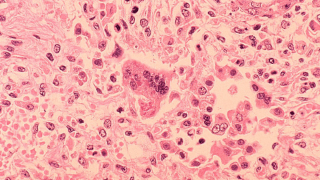Understanding Measles: Symptoms, Recent Cases, and Prevention Tips

Measles has recently returned to public attention with new cases reported in Cook County, Illinois. This highly contagious viral illness can pose a significant threat, especially to those who are not fully immunized. In this article, we’ll explore the latest updates on measles cases, its symptoms, and how everyone can play a part in preventing its spread.
What Is Measles?
Measles is a viral infection known for its rapid transmission and, if left unchecked, the potential for severe complications. Early symptoms often resemble those of a standard respiratory illness. These include high fever, cough, runny nose, and red, watery eyes. After a few days, a distinctive red rash usually appears, starting at the hairline and spreading across the body.
Recent Measles Cases in Cook County
Health officials in Chicago and Cook County have confirmed new measles cases in 2025, prompting increased awareness and action. One notable case involved an adult who passed through O'Hare International Airport, as highlighted in a detailed NBC Chicago report. This individual had traveled internationally and, despite having received a prior dose of the MMR vaccine, developed symptoms and was immediately isolated at home.
A second case was identified in a suburban Cook County resident, whose vaccination status was unknown. This person sought medical care promptly and has also been isolated. Statewide updates are available in an overview by ABC7 Chicago, where public health guidance and exposure sites are discussed.
How Is Measles Transmitted?
Measles spreads quickly from person to person, mainly through coughing or sneezing. The virus can linger in the air or settle on surfaces for hours. According to ABC News, even a brief exposure in public places, such as airports or stores, may be enough for someone to contract the illness if they're not protected.
Prevention: Vaccination and Awareness
The best protection against measles is vaccination. The MMR (measles, mumps, rubella) vaccine offers strong, long-lasting immunity. Two doses are recommended for all children—first between 12-15 months of age and the second between ages 4-6. Adults who are unsure of their immunization history should check with their healthcare provider—especially if they plan to travel internationally.
Breakthrough infections are rare but possible. However, those vaccinated typically experience milder symptoms and are less likely to transmit the virus. Ensuring up-to-date immunization not only protects individuals but also helps shield vulnerable community members, including infants and those who cannot be vaccinated for medical reasons.
What to Do If Exposed
Anyone who may have been exposed to measles and is uncertain about their vaccination status should contact their healthcare provider promptly. Early detection can help prevent further spread. If symptoms develop, it's vital to inform medical staff before visiting a clinic to minimize risk to others, as explained in the NBC Chicago article on recent exposures.
Stay Informed and Take Action
With measles cases making headlines, it’s crucial to stay informed and prioritize prevention. Simple actions like keeping vaccinations up to date and recognizing the signs of infection go a long way toward protecting your family and community. For further updates, consult reliable health sources and official public health announcements.